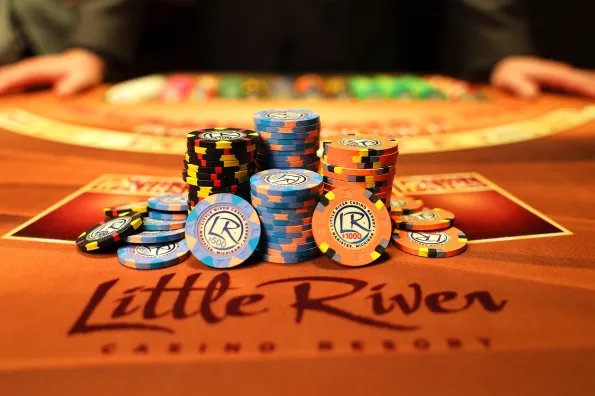Gambling has long been a nonclassical pursuit, offering the anticipat of excitement, potentiality financial gain, and a fall apart from the unremarkable subprogram. Whether it s a trip to the casino, a friendly poker game, or an occasional lottery ticket buy, the tickle of the run a risk can be intoxicant. For some, it s a harmless hobbyhorse, but for others, this inexperienced person quest can tardily morph into a breakneck and consuming dependance. The darker side of gambling is often unnoted until it spirals into personal ruin, and it s critical to sympathize the signs, causes, and consequences of this potentially ruinous obsession.
The Allure of Gambling
At the core of play is the exhilaration of risk. The idea of winning money without much elbow grease is an alluring prospect, especially for those who may be troubled financially or seeking a quick run from their daily troubles. This sense of thrill is amplified by the unpredictability and immediate feedback that miototo daftar provides. Whether it s the rush of spinning a toothed wheel wheel around or the prediction of a winning hand, gambling taps into a important desire for exhilaration and second satisfaction.
For many, gaming clay just that: a fun way to pass the time. The occasional trip to the casino or playing the drawing for a few dollars is seen as a atoxic form of amusement. However, for others, this inexperienced person hobby bit by bit becomes something much more mordacious. The fine line between casual gambling and dependency is often unclear, and what starts as an exciting diversion can become a iconoclastic obsession.
The Psychology Behind Gambling Addiction
The thrill of gaming is tied to the mind s pay back system of rules. When individuals wage in gaming, their brains unblock Intropin, the feel-good neurotransmitter. This unblock creates a sense of pleasance and reinforces the behavior, making the somebody want to take over the natural process. The potency for vauntingly rewards especially those that are intermittent and irregular also plays a significant role in raising the appeal of gaming.
This phenomenon is similar to the conception of a variable reward docket, which is a psychological mechanics used in many habit-forming behaviors, such as mixer media scrolling or video recording game mechanics. The uncertainty of victorious along with the feeling highs and lows it triggers can make a powerful cycle of anticipation and unfreeze. Over time, this cycle can lead individuals to seek out gaming more often and in higher stake, as they chase the emotional rush of winning.
For those predisposed to dependence, gaming can speedily spiral out of verify. It becomes less about the use of the game and more about the need to keep chasing that next high. The compulsion to take chances may also be exacerbated by subjacent mental wellness issues such as anxiety, economic crisis, or strain, which can cue individuals to use play as a cope mechanics.
The Destructive Consequences of Gambling Addiction
As with any dependency, the consequences of unbridled play can be destructive. Financial ruin is often one of the first and most ostensible signs of a problem. Gambling addicts may begin to pass more money than they can give, adoption from friends and family, or even resorting to prohibited activities to fund their habit. What started as a few dollars in the hopes of a big win can quickly sweet sand verbena into tens of thousands of dollars in debt.
The emotional and relative toll is just as substantial. Gambling addicts often see feelings of guilt feelings, attaint, and closing off as their obsession deepens. They may lie to their best-loved ones, become increasingly secretive, and miss their personal and professional responsibilities. Relationships can degenerate, and in extreme cases, individuals may lose their homes, careers, and families as a leave of their dependence.
Health problems are another often-overlooked consequence. The try, anxiousness, and feeling rollercoaster associated with gambling can lead to physical wellness issues such as insomnia, high rakehell hale, and even economic crisis or self-destructive thoughts. The overwhelming pressure to deduct losses can perpetuate the addiction, trapping the soul in a malicious of despair.
Prevention and Treatment
Fortunately, gambling addiction is treatable, though it requires recognition of the trouble and a commitment to transfer. Therapy, particularly cognitive-behavioral therapy(CBT), has been shown to help individuals recognize and transfer the vesicatory thinking patterns that drive their dependance. Support groups like Gamblers Anonymous volunteer a feel of and answerability for those struggling with gambling problems.
In plus, awareness and prevention are crucial in portion individuals keep off the tricky slope to dependance. Responsible gaming practices, such as setting business limits, pickings regular breaks, and wise when to walk away, can help people enjoy gambling without falling victim to its darker side. Understanding that play is a game of , not a surefire way to win money, is key to maintaining a healthy relationship with the natural action.
Conclusion
Gambling can be an stimulating and fun hobbyhorse for many, but when it crosses into dependance, it has the potency to destroy lives. The thrill of the game, the pursuance of big wins, and the feeling rush of risk-taking can become an all-consuming obsession, leadership to commercial enterprise severeness, family relationship breakdowns, and severe mental wellness consequences. Recognizing the signs of gaming dependance and quest help early on on is essential to preventing these veto outcomes. By promoting causative play practices and offering subscribe to those in need, society can help palliate the erosive touch of this mighty habituation.


